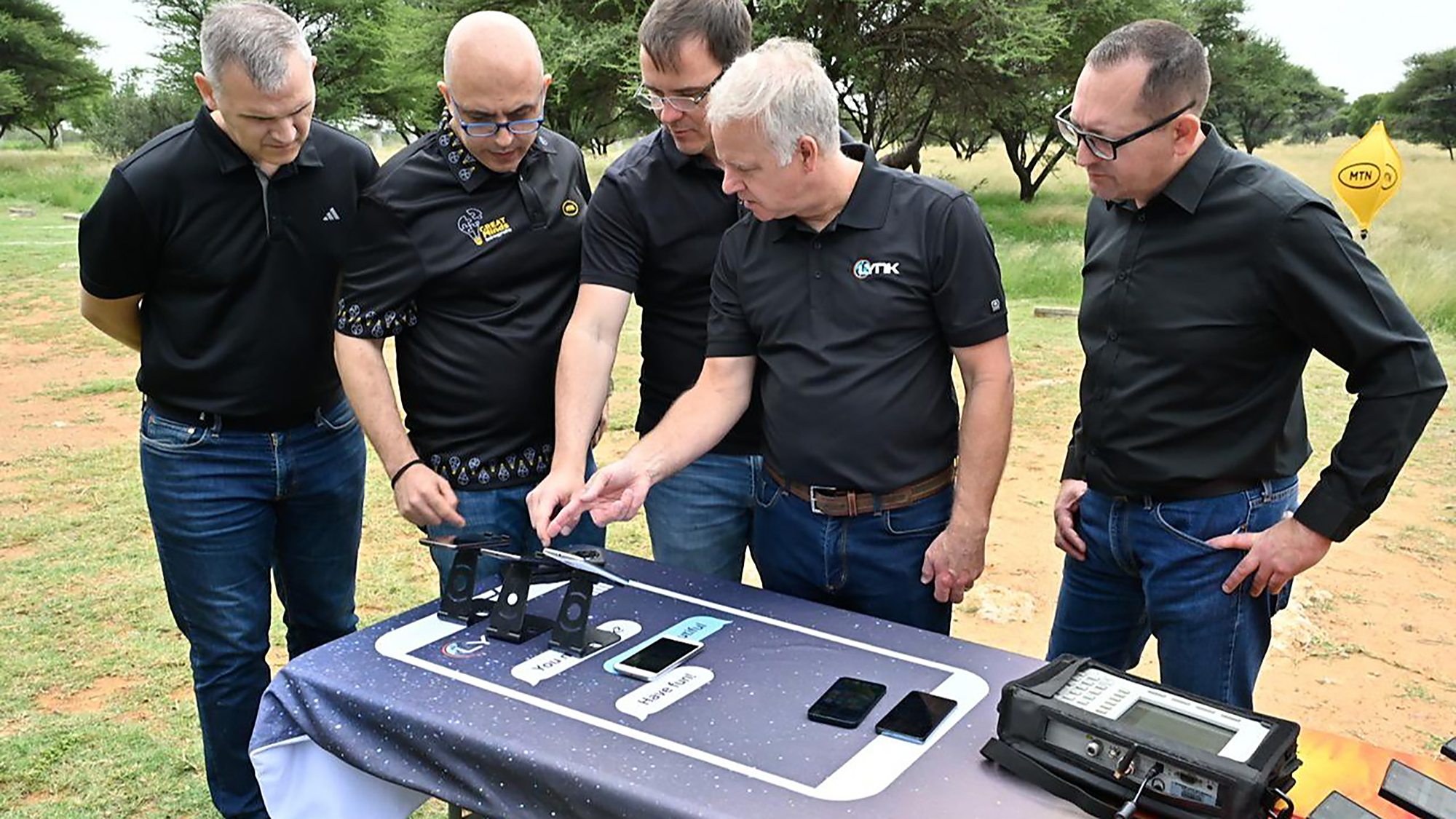On Thursday, 27 March 2025, on the edge of the small North West town of Vryburg, MTN South Africa and US-based satellite provider Lynk Global conducted Africa’s first satellite-to-smartphone voice call.
Crucially, it didn’t require a dish or a satellite phone — the call was made with a standard mobile device and it connected not to a cell tower, but to a low-Earth orbit (LEO) satellite 500km above the ground.
The test represents a practical demonstration of how satellite technology can complement existing mobile infrastructure in reaching underserved regions — one where high-cost infrastructure might no longer be the only route to mobile access in SA’s most disconnected communities.
Signal from the sky
MTN’s trial was approved by the Independent Communications Authority of South Africa (Icasa) and conducted on MTN-licensed spectrum, allowing engineers to test voice and SMS capabilities over Lynk’s satellite network, and forms part of the operator’s broader push to extend population coverage to 99%.
For rural SA, where network build-out has historically been slow and unprofitable, that target has always seemed out of reach; this trial may change that.
“The call in Vryburg enables MTN and Lynk Global to test voice call quality and SMS capabilities over a LEO satellite connection. The technical trial was part of our work to find potential solutions to the challenges of providing coverage in underserviced, rural and remote areas,” said MTN South Africa CEO Charles Molapisi.
According to Opensignal’s December 2023 connectivity audit, rural smartphone users in SA still experience 14.4% slower downloads, 29.2% slower uploads, and nearly double the “time with no signal” compared to urban counterparts. While 4G and 5G coverage is improving nationally, rural users in provinces such as Limpopo, Free State and the Northwest remain on the wrong end of the digital divide.
Wide gap for rural users
Stats SA’s 2023 General Household Survey shows how wide the gap remains. Landlines have all but disappeared — just 1.2% of households still use them — but 96% report access to cellphones. In the absence of fixed infrastructure, mobile access has become the default. In North West province, nearly one in four rural smartphone users (23%) never connect to Wi-Fi, and rely solely on mobile networks.
Read more: Digital divide critically holds back rural children from equal access to information and education
In this context, MTN’s low-orbit trial in Vryburg carries more than symbolic weight. It suggests that operators may be able to reach remote users without sinking billions into physical towers, fibre trenches or high-maintenance base stations.
“This marks the first satellite-to-unmodified-mobile-phone call made on the African continent,” said Lynk global chief commercial officer Dan Dooley, adding that the trial reinforced the effectiveness of Lynk’s technology to connect people anywhere in the world.
Satellite’s promise, and limits
MTN is not alone. Vodacom has partnered with Amazon’s Project Kuiper, and Ghana’s Telecel Group has signed a deal with Lynk.
Starlink, the most recognisable name in LEO satellite networks, has also expressed interest in SA. Reports that Starlink is “banned” from operating locally are inaccurate. The company has so far declined to comply with SA’s licensing framework, including empowerment and equity requirements. It should be noted that Starlink remains eligible to apply should it meet local conditions.
Still, satellite alone won’t solve SA’s rural connectivity problem. Cost, device availability, data integration, and persistent load shedding are barriers, as is policy clarity.
However, the Vryburg trial shows that for a child in the Karoo trying to access digital learning, or a farmer in Limpopo in need of market prices, a signal bar might one day come from space — from a satellite passing silently overhead. DM





